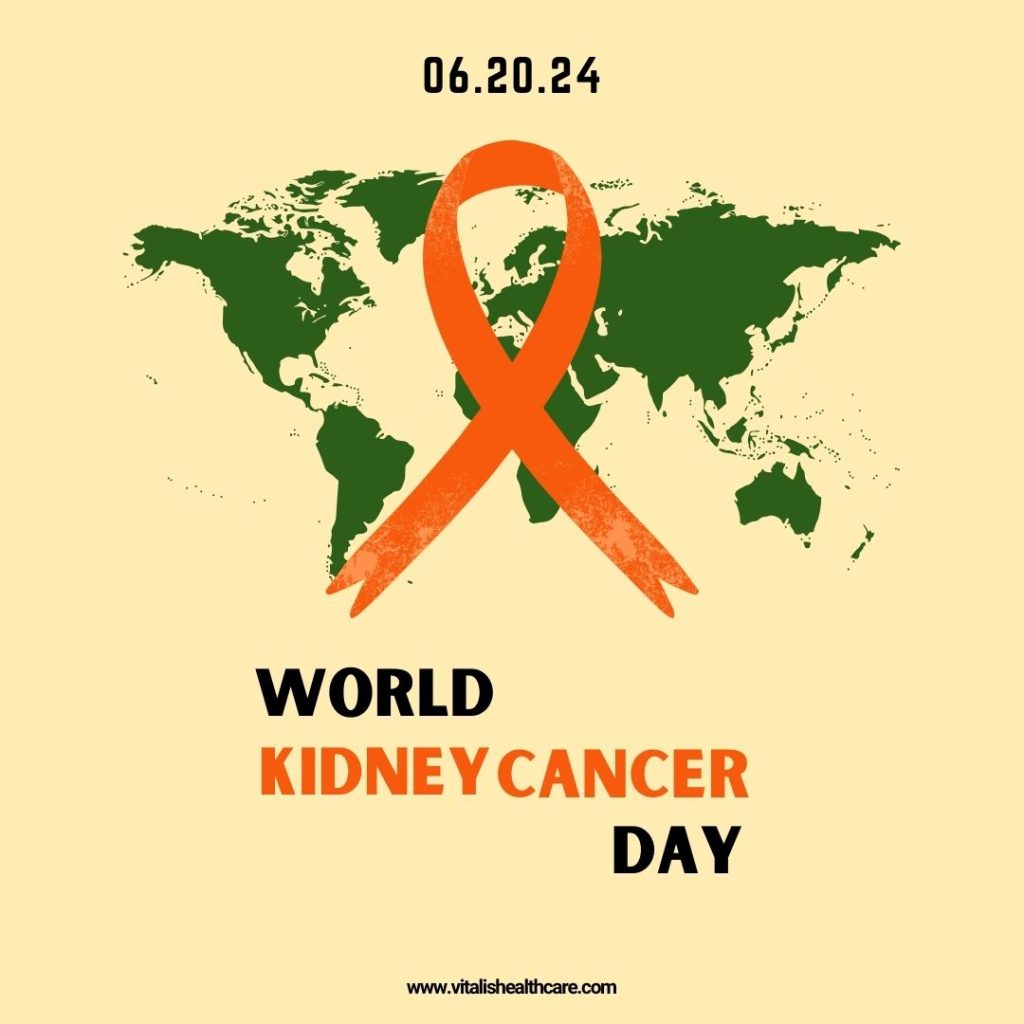The 2024 world kidney cancer day is on the 20th of June. This year’s theme “listening” aims to highlight the importance and benefits of shared decision making, helping patients feel empowered and creating awareness about misinformation. In today’s article, we will explore some common myths around kidney cancers and some available treatment options.
Kidney cancer is an abnormal growth of cells in the kidney tissue, kidney cancers can be cancerous(malignant) or non-cancerous(benign). Malignant tumors can spread to other tissues or vital organs. Kidney cancers are most common in people between the ages 65 and above.
Now let’s debunk some common myths about kidney cancers;
- Kidney cancer is rare: kidney cancer is one of the 10 most common cancers in both men and women.
- Smoking does not contribute to kidney cancer: smoking doubles the risk of developing kidney cancer.
- Kidney cancers are not curable: if kidney cancers are picked up at an early stage, kidney-sparing surgeries can be offered, helping a patient avoid losing their kidney and living an almost normal life with regular follow-up.
- Kidney cancers primarily affect young people: the average diagnosis of kidney cancers is 64 years.
- Women are at higher risk of developing kidney cancer: kidney cancers are as twice as common in men as it is in women. Smoking and constant exposure to harmful toxins in the workplace contribute to this difference.
Moving on, we will explore some treatment options available for people diagnosed with kidney cancer. It is advised to seek a medical professional to discuss treatment options,but it is important to remember that it is okay to seek a second and even third opinion to allow you to make the right decision for you. Let’s dive in!
- Surgery: surgery may be used to remove all or some of the kidney. Depending on the stage of the tumor growth, all the kidney including surrounding tissues affected by the tumor may be removed.
- Arterial embolization: when surgery is no longer an effective treatment for cancer, a medical procedure called arterial embolization may be used to shrink the tumor’.
- Radiation therapy: radiation therapy uses high energy x-rays to kill cancer cells or keep them from growing. External radiation therapy uses a machine outside the body to send radiation towards the area of the body with cancer.
- Chemotherapy: this is a treatment that uses drugs to stop the growth of cancer cells. Chemotherapy can be taken by mouth or injected into the bloodstream through the veins and can reach cancer cells throughout the body.
- Immunotherapy: this treatment uses the patient’s immune system to fight cancer, substances made by the body or in the lab are used to boost or restore the body’s natural defenses against cancer.
Cancer just like another life threatening condition can affect the overall well being of a patient and their loved ones. Some cancer patients spend most of their time in the hospital in order to receive treatment, this change of environment is a huge adjustment for both the patient and their loved ones.
We at Vitalis Home Healthcare understand the importance of receiving quality medical and non-medical care from experienced professionals from the comfort of your home. We have a variety of services carefully created to provide our clients with all the medical care and support they need when living or recovering from life threatening conditions.
If you or a loved one is in need of quality health care without the discomfort of living in a hospital, visit Vitalis Home Health care today to book a free consultation and get matched with the best service for your needs.
Phone Number:240.716.6874
Email: info@vitalishealthcare.com
Location: We provide our services in every county in the State of Maryland, United States of America.
Office Address: 8757 Georgia Avenue Suite 440 Silver Spring, MD 2091


